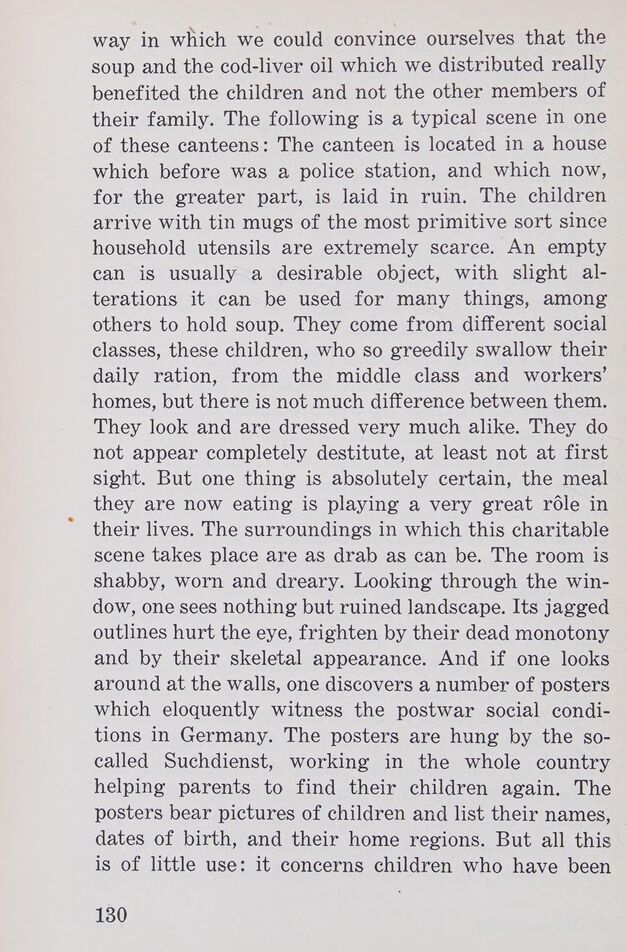
Full resolution (JPEG) - On this page / på denna sida - Back to Germany

<< prev. page << föreg. sida << >> nästa sida >> next page >>
Below is the raw OCR text
from the above scanned image.
Do you see an error? Proofread the page now!
Här nedan syns maskintolkade texten från faksimilbilden ovan.
Ser du något fel? Korrekturläs sidan nu!
This page has never been proofread. / Denna sida har aldrig korrekturlästs.
way in which we could convince ourselves that the
soup and the cod-liver oil which we distributed really
benefited the children and not the other members of
their family. The following is a typical scene in one
of these canteens: The canteen is located in a house
which before was a police station, and which now,
for the greater part, is laid in ruin. The children
arrive with tin mugs of the most primitive sort since
household utensils are extremely scarce. An empty
can is usually a desirable object, with slight
alterations it can be used for many things, among
others to hold soup. They come from different social
classes, these children, who so greedily swallow their
daily ration, from the middle class and workers’
homes, but there is not much difference between them.
They look and are dressed very much alike. They do
not appear completely destitute, at least not at first
sight. But one thing is absolutely certain, the meal
they are now eating is playing a very great rôle in
their lives. The surroundings in which this charitable
scene takes place are as drab as can be. The room is
shabby, worn and dreary. Looking through the
window, one sees nothing but ruined landscape. Its jagged
outlines hurt the eye, frighten by their dead monotony
and by their skeletal appearance. And if one looks
around at the walls, one discovers a number of posters
which eloquently witness the postwar social
conditions in Germany. The posters are hung by the
socalled Suchdienst, working in the whole country
helping parents to find their children again. The
posters bear pictures of children and list their names,
dates of birth, and their home regions. But all this
is of little use: it concerns children who have been
130
<< prev. page << föreg. sida << >> nästa sida >> next page >>